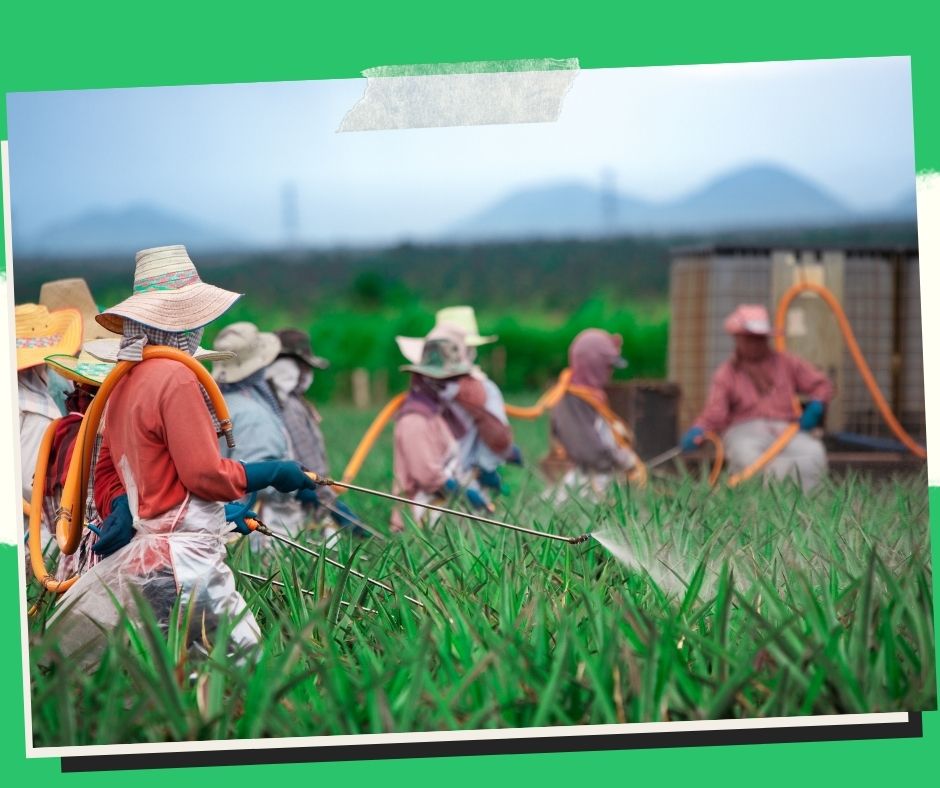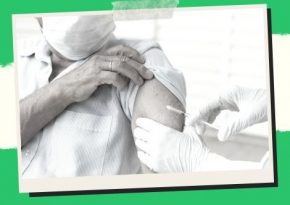
To improve the Agri sector, the government must use technology: Marcos
President Ferdinand R. Marcos Jr. stated on Tuesday that the national government must utilize modern technologies to transform the country’s agricultural industry.
Marcos, who also serves as the concurrent head of the Department of Agriculture, made this statement after visiting and speaking with representatives of the International Rice Research Institute (IRRI) in Los Banos, Laguna province.
Marcos claimed that after their discussion, he had newfound faith in technical advancements that had the potential to significantly alter the nation’s agricultural sector over time.
“The nice thing about this visit is that we discovered a number of new technologies that are well suited to the Philippine environment, which is what I would call the “maganda” of the visit’s outcome. We have been given hope, so I’m nabigyan ng pag-asa,” he told reporters in an interview.
The Philippine government now has the responsibility of ensuring that these items and technologies reach the general public, he continued.
According to a press release from Malacaang, Marcos also discussed the necessity of implementing “supporting policies” to modernize the rice business as a component of a thriving agri-food economy in the Philippines.
He was reported as adding that “new technology that addresses the difficulties that we are experiencing is beginning to be distributed down to the local farmers.”
In addition to being able to spread or give these new kinds and approaches, he continued, “We aim to develop those collaborations because we very much need to have a more targeted approach to how we deal with the agricultural sector to the rice lands in the Philippines.”
He applauded IRRI’s tenacity and accomplishments in creating high-yielding, climate-resilient rice varieties and farming techniques that have considerably raised global farmers’ productivity, profitability, and competitiveness.
“I don’t think it’s possible for me to emphasize the significance of the work you were doing. And speaking of you, I’ve been sincerely thanked by each and every one of you. And I think that perhaps I, or perhaps those of us from the Philippines, should be thanking you for your ongoing thirst for knowledge “added Marcos.
He also emphasized that agricultural innovations are being explored as dangers from rising fertilizer prices and difficulties with water management are present for rice harvests.
The practice of raising a rice crop from seeds sowed in the field, known as direct seeding, was described to Marcos along with other steps being taken to boost agricultural resilience. It provides a more environmentally responsible and sustainable alternative by cutting labor costs and rice production costs while drastically reducing water use and greenhouse gas emissions.
On the other side, Laser Land Leveling (LLL) is a laser-guided mechanical device to redistribute soil over a field for a leveled and uniform cultivated area, greatly boosting water and input efficiency and reducing greenhouse gas emissions from paddy farming.
The Solar Bubble Dryer, on the other hand, is a portable, low-cost seed drying system that prevents losses associated with conventional solar dryings, such as spills, animals, the elements, and vehicles driving over the grains.
He discovered the Hermetic Storage System, in which hermetic seed storage containers of different sizes help prevent oxygen and moisture entry, limiting losses from insects and rot and assisting in the longer-term preservation of grain quality.
Additionally, Marcos reproduced a picture of his late father visiting the IRRI headquarters on October 26, 1966, along with scientists, US President Lyndon Johnson, and IRRI Director General Robert Chandler.
With assistance from the Philippine government, the Ford and Rockefeller foundations launched IRRI in 1960. It is an independent, nonprofit research and educational organization. It employs over 1,000 people and has offices in 17 rice-growing nations in Asia and Africa.
The IRRI is the top research institution in the world committed to eradicating poverty and hunger via rice science, enhancing the health and welfare of rice growers and consumers, and preserving the environment for rice cultivation in the future.
lower cost rice
Marcos expressed hope that by Christmas, the price of rice in the nation would be considerably lower than it is now.
I am hoping that there will be a price adjustment for Christmas, and it appears that we might be lucky, he remarked.
Marcos admitted once more that there was still much to be done to bring rice prices even lower.
According to pricing monitoring by the Department of Agriculture, Metro Manila marketplaces are selling locally manufactured commercial rice products for between PHP38 and PHP50 per kilogram.
He did, however, guarantee that qualifying rice farmers will continue to receive cash aid through the rice farmers’ financial assistance (RFFA) program.
The PHP20 was the main objective. The goal is to cut it down to PHP20, as the saying goes. We’re still making the transfer payments we started with, he stated.
He also mentioned how the government has begun bringing down the cost of rice, at least through the National Food Authority’s (NFA) Kadiwa caravan, which allows Filipinos to purchase cheaper basic goods, such as rice, for just PHP25 per kg.
Marcos claimed that it was his idea to expand the Kadiwa program from a regional to a national level.
“We’re planning to expand the Kadiwa’s…
The Kadiwa was always carried out at the local government unit (LGU) level. “Now that we’ve made it a national program, it’s called Ngayon Ginawa na Naming,” he remarked.
The Kadiwa ng Pasko project, a President’s Office program led by the DA, aims to promote reasonably priced, high-quality goods.
The initiative was introduced on November 16 in an effort to combat inflation and seasonal price increases.
It offers a direct farm-to-consumer food supply chain that helps local agricultural producers earn more money by removing multiple marketing intermediaries.
Nationwide, 14 Kadiwa outlets opened; 11 were in Metro Manila, one each in Tacloban City, Davao de Oro, and Koronadal City in South Cotabato.
This week, more shops are anticipated to open.
Save/Share this story with QR CODE
Disclaimer
This article is for informational purposes only and does not constitute endorsement of any specific technologies or methodologies and financial advice or endorsement of any specific products or services.
 Need to get in touch?
Need to get in touch?

We appreciate your reading. 
1.) 

Your DONATION will be used to fund and maintain NEXTGENDAY.com
Subscribers in the Philippines can make donations to mobile number 0917 906 3081, thru GCash.
3.) 
4.) 
AFFILIATE PARTNERS

World Class Nutritional Supplements - Buy Highest Quality Products, Purest Most Healthy Ingredients, Direct to your Door! Up to 90% OFF.
Join LiveGood Today - A company created to satisfy the world's most demanding leaders and entrepreneurs, with the best compensation plan today.

 Business, Finance & Technology
Business, Finance & Technology

 Business Technology, Finance Technology & Information Technology
Business Technology, Finance Technology & Information Technology




 P4.7-M Swine Artificial Insemination Facility to be Established in Albay
P4.7-M Swine Artificial Insemination Facility to be Established in Albay 


